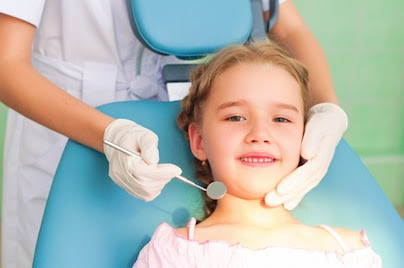Proper dental care is crucial for children’s overall health and well-being. Establishing good oral hygiene habits early in life sets the stage for a lifetime of healthy teeth and gums. This will lead to alleviated need for looking for the best Windermere pediatrics in Orlando FL.
As children grow and develop, their dental needs change, and it’s essential for parents to understand what to expect at each age.
In this article, we’ll explore the dental care milestones for children and what parents can do to support their child’s oral health at each stage.
Infancy (0-2 years):
The journey to good dental health begins even before your baby’s first tooth emerges. Parents should gently clean their baby’s gums with a soft, damp cloth after feeding to remove bacteria and prevent the buildup of plaque.
Once the first tooth erupts, usually around six months of age, it’s time to start brushing. Use a small, soft-bristled toothbrush and a rice-sized amount of fluoride toothpaste.
Toddlerhood (2-4 years):
As more teeth come in, usually by age three, parents should continue brushing their child’s teeth twice a day using a pea-sized amount of fluoride toothpaste. Encourage toddlers to spit out the toothpaste rather than swallowing it.
It’s also essential to limit sugary snacks and drinks and encourage healthy eating habits to prevent tooth decay. Regular dental check-ups should begin around age one or when the first tooth erupts.
Preschool (4-6 years):
By age four, most children have a full set of primary teeth. Parents should continue supervising toothbrushing to ensure proper technique and thorough cleaning. Around age six, the first permanent molars typically emerge, often referred to as “six-year molars.”
These molars are particularly susceptible to decay, so it’s crucial to maintain good oral hygiene habits and visit the dentist regularly for cleanings and check-ups.
School-Age (6-12 years):
As children enter school-age, they become more independent with their oral hygiene routines. Parents should still supervise brushing and flossing until children develop the dexterity to do it effectively on their own, usually around age eight or nine.
This is also a critical time for orthodontic evaluation, as any issues with tooth alignment or bite can be addressed early for better treatment outcomes.
Adolescence (12-18 years):
The teenage years bring significant changes, including the eruption of wisdom teeth. Around age 12, the second set of permanent molars, known as “12-year molars,” emerge.
This is a crucial time for reinforcing good oral hygiene habits, as teenagers are more susceptible to cavities due to hormonal changes and lifestyle factors such as poor diet and inadequate brushing.
Regular dental check-ups and cleanings are essential to prevent oral health issues during this stage.
Tips for Parents:
- Lead by example: Children learn by observing their parents, so make sure to prioritize your own oral health and demonstrate proper brushing and flossing techniques.
- Make dental care fun: Use colorful toothbrushes, flavored toothpaste, and fun timers to make brushing a positive experience for children.
- Monitor diet: Limit sugary snacks and drinks, and encourage healthy snacks like fruits, vegetables, and cheese to support good oral health.
- Schedule regular dental visits: Early and consistent dental care sets the foundation for a lifetime of healthy smiles. Be proactive about scheduling dental check-ups and cleanings for your child.
In conclusion, understanding the dental care milestones for children is essential for promoting good oral health from infancy through adolescence. By establishing healthy habits early, parents can help their children maintain strong teeth and gums for years to come. With proper guidance, support, and regular dental care, children can enjoy a lifetime of healthy smiles.
